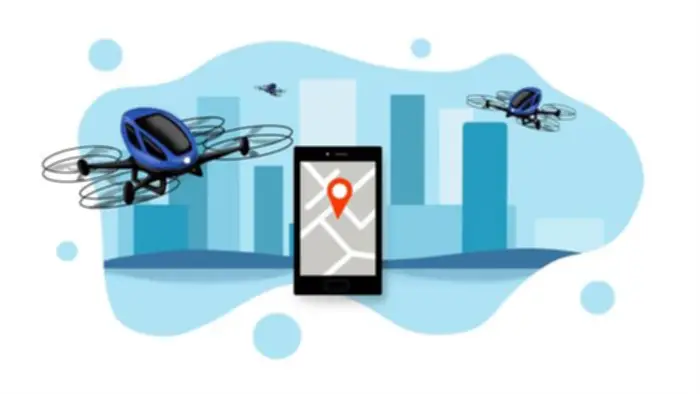As organizations more and more undertake new applied sciences, open-source tools, big information sources, and cloud storage, ensuring consistent and synchronized knowledge turns into crucial, whether or not on-premises or in the cloud. HIPs allow real-time or scheduled knowledge synchronization between various cloud platforms for backup, catastrophe restoration, or to hold up a unified information repository accessible from multiple services. API administration inside Hybrid Integration Platforms is essential for making certain secure, efficient, and scalable information trade between disparate functions. It streamlines the mixing process by securing APIs, simplifying access with thorough documentation, managing variations for compatibility, and monitoring efficiency. Additionally, it controls API visitors through price limiting, sustaining system integrity. This performance is pivotal for blending traditional and trendy applied sciences hybrid integration solutions inside a HIP, facilitating seamless interoperability, and enhancing organizational agility.

Implementation And Optimization Of A Hybrid Integration Strategy
An integration governance characteristic ensures HIP integrations adhere to an existing architecture. A Hybrid Integration Platform (HIP) is an answer to attach purposes, data, and workflows over a number of methods across on-premises (physical) and cloud-based (digital) environments. It can be deployed as a true multi-tenant cloud resolution, a non-public cloud, or an on-premises knowledge solution.

How Can A Hybrid Integration Platform (hip) Enhance Efficiencies In Your Systems?
Enhanced user interfaces and developer tools are anticipated to make integration simpler and more intuitive. They help the automation of supply chain processes, improve transaction accuracy, and enhance companion relationship administration by making certain that important enterprise information flows securely and efficiently between entities. Data integration centralizes knowledge from numerous sources, bridging the gap between on-premises and cloud environments. Its important perform is to ensure information consistency and availability, supporting knowledgeable decision-making and operational efficiency. By breaking down information silos, it enables a unified data view, fostering enhanced insights and better service supply.
Why Dckap Integrator Is The Right Solution For Distributors
Hybrid integration platforms present a flexible way to connect on-premise, cloud and hybrid applications. They act as a central hub to route information between different techniques and rework knowledge to suit each application’s wants. Hybrid integration brings collectively capabilities like application integration, data integration, API administration, B2B integration, cloud integration and so forth. underneath one platform. A hybrid integration platform provides organizations with all the required instruments to assist a variety of hybrid integration situations and make data integration between on-premise and cloud environments simpler and simpler. Once you’ve outlined this a part of the plan, you should start your research to determine what options, instruments, and providers may prolong the capabilities of your IT team.

What Is Hybrid Data Integration?
To sustain with the rapidly evolving technological landscape, companies are in search of new methods to attach their techniques with the most recent cloud apps. Two in style system integration approaches to build these connections are the iPaaS (integration Platform as a Service) and hybrid integration solutions. While iPaaS solutions help integrate a number of techniques, apps, and knowledge sources on the cloud, hybrid integration involves integrating the identical throughout on-premises and cloud environments. However, there are advanced iPaaS options like Alumio that additionally allow on-prem integrations with cloud providers and apps. While iPaaS options are deployed as fully managed companies in the cloud, hybrid integration options could also be deployed by way of each cloud-based and on-premises middleware, and even via customized integration methods. Hybrid integration options are designed to connect applications, knowledge, and recordsdata with cloud companies, throughout both on-premises and cloud-based environments.
It provides instruments, runtime environments, and frameworks for developers to construct, take a look at, deploy, and scale their functions. On the opposite hand, iPaaS, or Integration Platform as a Service, focuses on integrating completely different functions and systems in a cloud setting. It provides a platform to attach and handle data trade between numerous functions, enabling businesses to streamline their operations and create superior workflows. While PaaS supports software growth, deployment, and administration, iPaaS focuses on integration and data management within the cloud. Until just lately, hybrid integration capabilities had been piecemeal, relying on completely different elements within stand-alone tools similar to API management, iPaaS, and ESB solutions.
- IBM‘s providing in the HIP enviornment is anchored by its Cloud Pak for Integration, a complete suite designed to deal with the challenges of integration in a multi-cloud world.
- Adeptia is a powerful Hybrid Integration Platform that can assist optimize your business processes and enhance information integration.
- In addition to software program and systems, integrating devices is equally crucial for leveraging the total potential of the Internet of Things (IoT).
- And within the context of hybrid integration it signifies that a reliable knowledge synchronization needs to be ensured between all parts of an organization’s hybrid cloud structure.
- Adopting an agile integration technique helps handle these changes throughout people, processes and structure.
By integrating these various functions with a Hybrid Integration Platform, a retailer can hyper-personalize buyer interactions. But not simply any menu; quite, your Netflix menu — a hub that features the content material you wish to consume. Sure, you can discover a lot, if not all, of your preferred programming doing your individual on-line searches. Cloud-based options allow a number of users to update data or work on documents at the similar time and in actual time.
This means mapping and orchestrating data to implement data logic to a variety of out-of-the-box apps, SaaS techniques and customisable purposes. As a outcome, users are capable of deliver information and services in a method that might be understood. Starting with the right hybrid integration platform strategy equips you to accomplish this. Hybrid integration ought to type the preliminary, essential step of any digitalization strategy.
An iPaaS supplies a method to monitor and handle real-time knowledge sharing and synchronization as nicely as generate custom workflows for improved operations and extra efficient enterprise processes. OpenLegacy is in the hybrid integration platform (HIP) product class, which connects and generates cloud-based services to and from on-premise purposes. HIP options go away the data and purposes where they at present exist, each on-prem and within the cloud, and leverage the mixing between them primarily based on consumer situations. A good example of how HIP can be used is a case when you use on-premise legacy methods and additionally have IoT gadgets, for instance, to track your shipments to improve your supply chain. You will want to integrate the cloud-based data from the IoT units with your techniques to turn the real-time knowledge into meaningful insights. One of the principle causes for an enterprise to search for a hybrid integration platform is that earlier, they invested in their IT structure, and the company is highly depending on the techniques.
It goes without saying that businesses that leverage purely on-cloud knowledge storage would thrive with an efficient integration Platform as a Service. An iPaaS answer can expedite the migration of information to the cloud, which may benefit Software as a Service companies and people with B2B audiences. Aside from this increased cost, an iPaaS answer also can take extra time to complete an integration, even for small masses.
Adeptia is one such expertise that can help businesses optimize their operations by way of improved information integration and administration. Understanding the development of integration systems is crucial to appreciating the significance of Hybrid Integration Platforms. In the previous, organizations primarily relied on manual, point-to-point connections between techniques, which proved to be time-consuming and error-prone.

Leave a Reply
Want to join the discussion?Feel free to contribute!